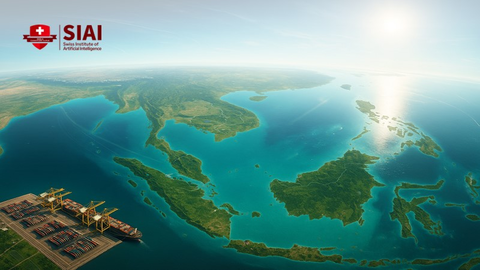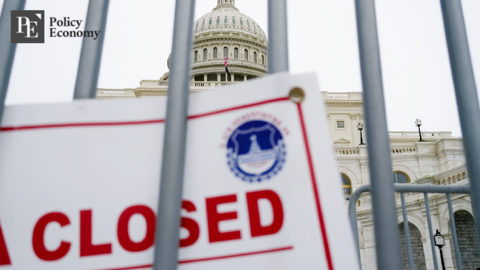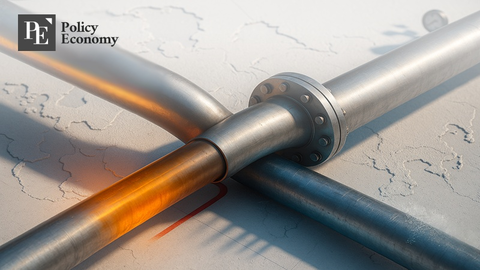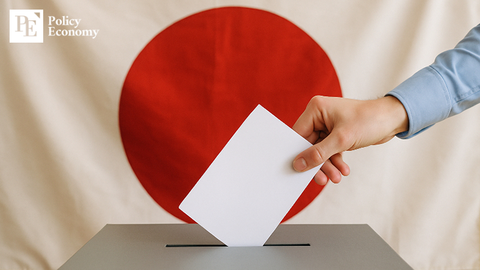[동아시아포럼] 불확실한 국제 정세, 일본·아세안 동등한 협력 나서야
입력
수정
[동아시아포럼]은 EAST ASIA FORUM에서 전하는 동아시아 정책 동향을 담았습니다. EAST ASIA FORUM은 오스트레일리아 국립대학교(Australia National University) 크로퍼드 공공정책 학교(Crawford School of Public Policy) 산하의 공공정책과 관련된 정치, 경제, 비즈니스, 법률, 안보, 국제관계 및 사회에 대한 연구·분석 플랫폼입니다.
저희 폴리시코리아(The Policy Korea)와 영어 원문 공개 조건으로 콘텐츠 제휴가 진행 중입니다.
일본과 아세안(ASEAN·동남아시아국가연합)이 더 동등한 입장에서 협력해야 한다는 주장이 제기됐다. 아시아 정치 전문가들은 올해 교류 50주년을 맞은 아세안과 일본이 그간 국제 정세 변화에 대응해 새로운 협력 관계에 나서야 한다고 제언했다. 태평양을 두고 미국과 중국의 힘겨루기가 이어지는 요즘, 태평양에 위치한 아세안과 일본의 새로운 관계에 이목이 쏠리고 있다.
아세안은 동남아시아의 정치, 경제, 안보, 사회, 문화 공동체로, 현재 동티모르를 제외한 10개 동남아시아 국가(인도네시아, 태국, 필리핀, 말레이시아, 싱가포르, 브루나이, 베트남, 라오스, 미얀마, 캄보디아)로 구성돼 있다. 동티모르 역시 꾸준히 가입 희망 의사를 타진하고 있는 만큼 동남아시아 지역 국가 전체 가입이 현실화할 전망이다. 아세안은 꾸준한 경제 성장을 무기로 대한민국, 중국, 일본, 호주, 인도 등 주요국과 협력 관계를 강화하며 국제 입지를 높이고 있다.
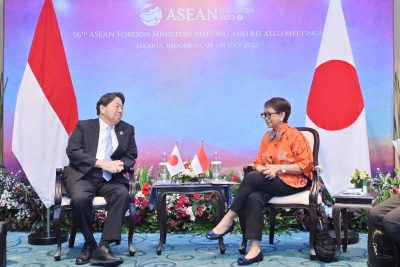
불균형한 협력의 출발
일본과 아세안은 1973년 무역 관련 각료급 회의를 개최하며 본격적인 협력 관계를 시작했다. 1960년대 후반, 세계에서 두 번째 경제 대국으로 발돋움한 일본은 동남아시아 지역에 막강한 경제적 입지를 구축했다. 당시 일본 기업들은 빠른 산업화를 기반으로 공산품을 대량 수출하며 동남아시아에 본격적인 시장 확장에 나섰다.
이어 후진국이었던 동남아시아에 현지 법인을 설립하는 등 경제적 원조를 지원하는 조건으로 일본의 국제 정치 영향력에 아세안 국가들을 활용했다. 당시 일본, 아세안 간 협력 관계는 전혀 대응한 조건이 아니었다는 게 전문가들의 의견이다. 이와 같은 아세안·일본 간 힘의 역학관계는 2000년대 초반까지 유지됐다. 다만 일본은 1977년 후쿠다 독트린을 통해 아세안과 대응한 파트너쉽을 강조한 바 있지만 현실을 그렇지 못했다. 당시 일본과 아세안의 불균형 협력 관계는 많은 아세안 국가의 반발을 일으켰다.
일본 침몰과 아세안 급성장, 그리고 혼란의 시대
1980년대 후반 일본 버블 경제가 붕괴하고 아세안이 본격적인 경제 성장에 돌입하자 상황은 급변했다. 지난해 아세안의 총 GDP는 일본의 85% 수준인 약 3조6,000억 달러(약 4,797조원)에 달하는 등 강력한 글로벌 공동체로 발돋움했다. 경제적 요인 외에도 일본의 추락과 중국의 급부상, 미국의 견제 등 다변화된 국제 정세는 아세안의 정치적 입지를 더욱 강화하는 요인으로 작용했다.
전문가들은 아세안과 일본이 새로운 외부 도전에 직면했다고 분석한다. 미·소 냉전 종식 이후 동아시아는 미국 패권이 유지되는 자유주의 국제 질서 아래 안정적인 국가 성장을 도모했다. 허나 현재 미·중 갈등으로 말미암은 국제 정세의 변화로 인해 안정된 지역 정세가 경제적, 안보적으로 위협받고 있다.
일본의 국방·외교 정책의 핵심은 미국과 동맹이다. 일본 정부가 발표한 '2022 국가 안보 전략'에서도 역내 장기적인 평화와 안보를 위해 미국 협력 우선을 명시한 바 있다. 그러나 미·중 분쟁이 심화됨에 따라 대표적 친미 국가인 일본 역시 국제 분쟁에 휘말리는 추세다. 이미 센카쿠 열도(중국명 댜오위다오) 영토 분쟁으로 중국과 갈등을 겪고 있는 일본은 심화하는 미·중 갈등에 곤혹스러운 눈치다. 중국은 일본 최대 무역 파트너 국가이자 지난해 기준 세 번째 규모의 직접 투자 대상국이기 때문이다.
사실 중국의 패권 확장은 아세안에게도 부담스럽다. 남중국해에서의 중국의 독단적인 행동은 아세안 지역의 개방적인 해양 질서를 위협하고 있다. 미·중 전략 경쟁 격화 역시 전략적 요충지인 아세안 지역에 큰 안보 위험이 되고 있다. 이처럼 중국 경제와 불가분의 관계로 얽힌 아세안 역시 최근 정세에 긴장하고 있다. 중국의 전체 무역수지에서 아세안이 차지하는 비중은 2010년 12%에서 2020년 19.4%로 증가했다. 아세안은 중국의 최대 무역 파트너 국가로 부상했으며, 중국도 아세안에 외국인 직접 투자 활동을 적극 펼치고 있다.
그렇다고 해서 미국을 등한시하기도 어렵다. 미국은 아세안의 최대 투자국이자 안보 동맹국이다. 일부 아세안 국가에 있어 미국은 혈맹국의 의미를 가진다. 필리핀과 싱가포르엔 미군 기지가 주둔 중이며 브루나이, 인도네시아, 말레이시아, 태국, 베트남은 미 해군이 주도하는 동남아시아 합동 훈련에 매년 참여하고 있다.
주도자에서 촉진자로, 일본의 변화
최근 일본 정부는 다변화된 국제 정세에 따라 미국 헤게모니(패권) 중심의 기존 자유주의 국제 질서가 쇠퇴함을 인정하고 국제 질서에 기반해 동맹국과 연대하는 새로운 외교 전략을 채택하고 있다. 지난달 18일 개최된 자유롭고 개방된 인도 태평양을 제안하는 '한·미·일 정상회의'가 그 대표적인 예다. 현재 일본은 과거 태평양에 접한 아시아권에 큰 영향을 행사했던 '주도자'가 아니라 이해관계국과 연대를 제안하고 협력하는 ‘촉진자’로 변모하고 있다.
아세안 역시 일본과 동일한 입장을 취하고 있다. 경제, 안보적 측면에서 비교적 낙후된 아세안은 안정적인 지역 질서 조성 및 국가적인 도전에 대비하기 위해 글로벌 파트너가 필요한 입장이다. 일본과 아세안의 이해관계나 목표가 일치하는 것은 아니나, 외교적 자율성 보장과 강대국 경쟁 사이에서 자주권 확립을 위해서는 연대할 필요가 있다.
일본과 아세안을 위한 세 가지 솔루션
일본과 아세안 협력 구축에는 세 가지 핵심 조건이 있다. 첫째, 일본과 아세안 공통의 인도·태평양 전망에 상호 동조하고 국제 규약을 기반으로 한 공정한 지역 질서 구축에 나서는 것이다. 이를 위해 아세안은 필리핀, 베트남 등에서 일본 원조를 통해 해안경비대 역량 강화에 나서고 있다. 일본도 필리핀, 말레이시아, 베트남, 태국, 인도네시아를 포함한 아세안 회원국과 방위 장비 이전 협정을 체결하며 아세안 지역 질서 확립에 나서고 있다.
하지만 여전히 부족하다는 평가다. 세계 군사력 평가단체 GFP(Global Firepower)에 따르면 인도 태평양에 인접한 국가의 군사력 순위는 미국 1위, 중국 3위, 인도 4위, 한국 6위 등으로 최정상 군사강국이 포진해 있다. 반면 아세안은 베트남 19위, 대만 23위, 태국 24위 등으로 가장 순위가 높은 인도네시아도 13위에 불과하다. 일본은 8위로 순위가 높은 편이나 ‘평화헌법’으로 인해 군사 작전에 제한이 있다. 따라서 역내 질서 유지를 위해선 일본과 아세안 간 보다 높은 수준의 국제 협약과 군사 공조가 필요하다.
두 번째 조건은 상호 경제 발전과 형평성을 위해 경제 공조에 나서는 것이다. 실제로 일본은 코로나19로 피해를 입은 아세안 국가에 협력을 강화한다는 의지를 표명하며, 25억 달러(약 3조3,327억원)의 금융 지원과 아세안 공중보건 비상 및 신종질병센터를 설립하며 실질적 노력에 임한 바 있다. 향후 일본과 아세안이 환태평양경제동반자협정(CPTPP)과 같은 자유무역협정을 강화한다면 상호 무역 수지 개선에 큰 도움이 될 것으로 관측된다.
마지막 조건은 아세안과 일본이 '마음과 마음이 통하는 파트너'로서 상호 이해와 신뢰를 증진해야 한다는 것이다. 일본과 아세안은 문화, 역사적 배경이 다른 데다 특히 아세안은 다종교, 다인종으로 구성돼 있어 더욱 복잡하다. 아베 정부 시절에 아세안과 일본 간 문화 교류를 강화한 바 있지만 상호 이해, 정보 공유, 문화 교류를 위한 다각적 채널 구축은 여전히 미흡하다.
아세안과 일본은 지난 50년 동안 지속 발전해 왔지만, 불확실한 국제 정세로 인한 공통된 과제를 안고 있다. 과거 불균형했던 관계는 잊고 상호 이해를 바탕으로 평등하고 지속 가능한 파트너쉽을 새롭게 구축해야 할 시점이다.
Japan now has to deal with ASEAN on a more equal footing
In 2023 ASEAN and Japan celebrate the 50th anniversary of their official partnership. ASEAN and Japan have both changed dramatically over the past 50 years. So too has their relationship as it has moved towards greater equality, with Japan’s projection as a major power shrinking after the bursting of its bubble economy and the rise of China in East Asia.

Japan became the world’s second-largest economy in the late 1960s, establishing a formidable economic presence in Southeast Asia. Japanese companies exported industrialised goods and established business operations across the region. For the founding members of ASEAN — Indonesia, Malaysia, the Philippines, Singapore and Thailand — industrialisation was still a future project. Japan leveraged its economic power for political influence, providing considerable aid to Southeast Asian countries.
Japan’s early economic presence in Southeast Asia elicited a backlash in ASEAN countries. The ‘equal’ partnership that the Fukuda doctrine of the late 1970s emphasised did not then represent the reality of Japan–ASEAN relations.
As Japan’s status has diminished, ASEAN’s economic and political status has grown, elevating Southeast Asian interests globally. ASEAN combined GDP reached about US$3.6 trillion in 2022 — 85 per cent of that of Japan — and the region’s on a strong growth trajectory.
Both ASEAN and Japan now face new external challenges. After the end of the Cold War, East Asia enjoyed a stable regional environment under the liberal international order sustained by US hegemony. This stability is now threatened by a changing power balance and escalating US–China strategic competition. Navigating these power dynamics is complex, and neither Japan nor ASEAN countries can simply choose one side or the other.
The alliance with the United States is the core of Japan’s defence and foreign policy strategies. The 2022 National Security Strategy prioritises cooperation with the United States towards long-term peace and security in the region. As US–China competition intensifies, this has implications for Japan–China security relations, already fraught by territorial disputes over the Senkaku/Diayuo Islands and natural resources in the East China Sea. Yet the Chinese economy remains crucial for Japanese businesses. China is Japan’s largest trading partner and was the third-largest destination for Japanese direct investment in 2022.
For ASEAN, China’s assertive behaviour in the South China Sea threatens the free and open, rules-based maritime order in the region. Escalating US–China strategic competition challenges ASEAN’s ‘centrality’ while the emergence of minilateral strategic coalitions such as the Quad and AUKUS diminish the importance of ASEAN’s contributions to regional stability.
At the same time, the ASEAN and Chinese economies have also become inseparably intertwined. The share of ASEAN’s total trade with China grew from 12 per cent in 2010 to 19.4 per cent in 2020, ASEAN as a group is China’s largest trade partner and foreign direct investment from China into ASEAN is steadily increasing.
For ASEAN countries, the United States remains important as a trading partner as well as its largest source of investment. Some ASEAN countries cooperate closely with the United States in security and defence. The Philippines and Singapore lease bases to the US military and — with Brunei, Indonesia, Malaysia, Thailand and Vietnam — participate in annual Southeast Asia Cooperation and Training exercises led by the US navy.
As US–China competition intensifies, both powers are strengthening the economic security dimensions of policy. The Japanese policy elite acknowledges that the existing liberal international order under US hegemony is on the wane, and Japan has begun to adopt a new approach, assuming a role as promoter of the rules-based regional order. The proposal of the ‘Free and Open Indo-Pacific’ is one case in point. Like ASEAN, Japan also accepts that it does not have sufficient power to foster and sustain such a regional order alone.
Though the interests and objectives of Japan and ASEAN on specific issues don’t always coincide, they need to enhance cooperation because both need partners to foster a stable regional order and deal with national challenges. They need to ensure their diplomatic autonomy and maintain their voice to protect against the whims of great power rivalries.
There are three main pillars on which Japan and ASEAN can now build that cooperation.
The first is a commitment to a free, open, rules-based and fair regional order by enhancing defence and security cooperation, particularly maritime cooperation under the ASEAN Outlook on Indo-Pacific and Japan’s Free and Open Indo-Pacific. ASEAN countries such as the Philippines and Vietnam are improving the capacity of their coast guards through Japanese aid. Japan has also held 2+2 meetings with Indonesia and the Philippines and concluded defence equipment transfer agreements with several ASEAN members, including the Philippines, Malaysia, Vietnam, Thailand and Indonesia.
The second pillar is around the shared goals of economic development and equity. Japan demonstrated its commitment to strengthening cooperation with ASEAN countries affected by the COVID-19 pandemic, providing US$2.5 billion in loans for financial assistance and establishing the ASEAN Centre for Public Health Emergencies and Emerging Diseases. Japan and ASEAN can also enhance supply chain resilience by strengthening free trade agreements such as the Comprehensive and Progressive Agreement for Trans-Pacific Partnership.
The third pillar is to foster mutual understanding and trust between ASEAN and Japan as ‘heart-to-heart partners’. Though the Abe administration strengthened cultural exchange between ASEAN and Japan, there is still need to build multilayered channels for mutual understanding, information-sharing and intellectual exchanges.
Though the domestic and regional circumstances of ASEAN and Japan have evolved over the past 50 years, they share many common challenges. As the regional order becomes more uncertain, the time is right for ASEAN and Japan to forge a new, equal partnership, based on defence and security cooperation, economic development with sustainability and equity and closer mutual understanding.
원문의 저자는 일본 요코하마 가나가와대학교의 미에 오바(Mie Oba) 법학부 교수입니다.


